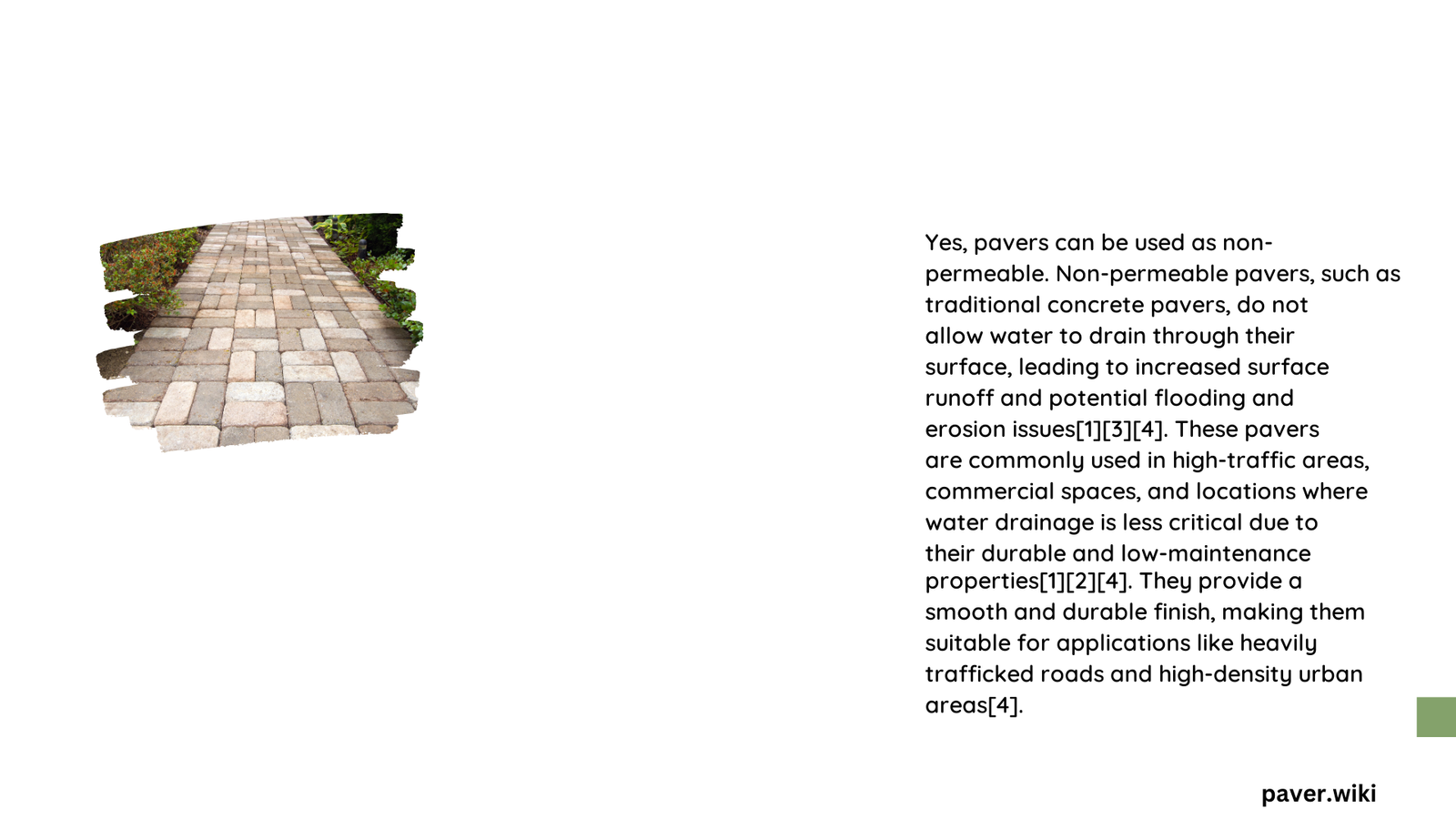Pavers offer versatile solutions for creating solid, water-resistant surfaces across residential and commercial environments. Non-permeable pavers effectively block water infiltration through strategic material selection, precise installation methods, and specialized joint-filling techniques. Homeowners and contractors can transform outdoor spaces with durable, low-maintenance surfaces that manage water runoff while providing aesthetic appeal and structural integrity.
What Makes Pavers Non-Permeable?
Can Concrete Pavers Block Water Effectively?
Concrete pavers represent the most reliable non-permeable surface option. Their dense composition prevents water penetration through several key characteristics:
- Solid Material Composition: Cement, aggregate, and water create a compact surface
- Minimal Joint Spacing: Tight installation reduces water infiltration
- Surface Density: High compression during manufacturing eliminates porosity
Concrete Paver Performance Metrics
| Characteristic | Performance Level |
|---|---|
| Water Resistance | High |
| Durability | Excellent |
| Installation Complexity | Moderate |
| Maintenance Requirements | Low |
How Do Natural Stone Pavers Prevent Water Penetration?
Natural stone pavers like granite and limestone can become non-permeable through strategic installation:
- Tight Joint Filling: Use specialized sealants or polymeric sand
- Complete Surface Coverage: Minimize gaps between stones
- Proper Base Preparation: Create a solid, compacted foundation
What Installation Techniques Ensure Non-Permeability?
Successful non-permeable paver installation requires:
- Compacted aggregate base (4-6 inches thick)
- Precise leveling
- Sand or polymeric joint fillers
- Potential surface sealing for additional protection
Are Clay Brick Pavers Suitable for Non-Permeable Surfaces?
Clay brick pavers can function as non-permeable surfaces when:
- Installed without drainage gaps
- Joints completely filled with sand
- Regular maintenance and resealing performed
What Challenges Exist with Non-Permeable Paver Surfaces?
Potential challenges include:
- Increased stormwater runoff
- Potential erosion risks
- Requirement for separate drainage systems
- Higher surface temperature retention
Professional Recommendations

Professionals recommend:
- Consulting local building codes
- Designing comprehensive drainage solutions
- Selecting appropriate materials based on climate
- Regular maintenance inspections
Cost Considerations
Non-permeable paver installations typically range:
– Residential: $10-$25 per square foot
– Commercial: $15-$35 per square foot
Technical Specifications
- Compressive Strength: 8,000-10,000 PSI
- Water Absorption: Less than 5%
- Recommended Base Depth: 4-6 inches
Expert Tips
- Always use professional installation services
- Select high-quality materials
- Implement comprehensive drainage planning
- Consider local environmental regulations
Final Insights
Non-permeable pavers offer robust, long-lasting surface solutions when installed correctly. Proper material selection, precise installation, and ongoing maintenance ensure optimal performance across various applications.
